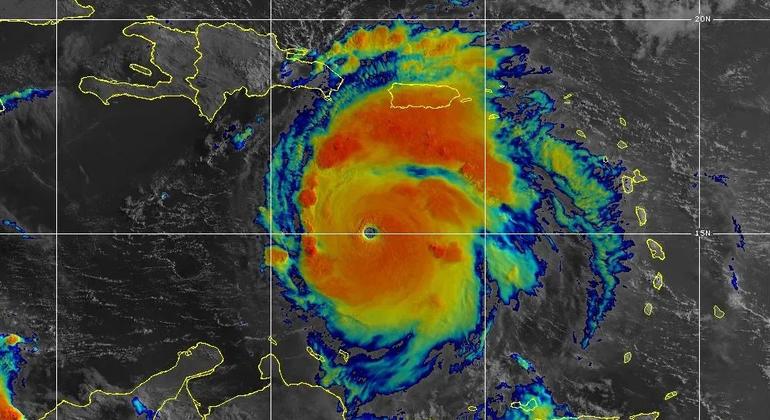The 2024 Atlantic hurricane season has come to an end, leaving a trail of destruction in its wake. With 18 named storms, 11 hurricanes, and five major hurricanes – classified as Category 3 or higher – this season marked the ninth consecutive above-average season for the Atlantic basin. The relentless storms served as a stark reminder of the ongoing climate crisis and its impact on extreme weather events.
Celeste Saulo, Secretary-General of the UN World Meteorological Organization (WMO), expressed concern over the increasing frequency and intensity of tropical cyclones, intense rainfall, and flooding. She noted that year after year, the climate crisis continues to break new records, resulting in more extreme weather events. The devastating effects of these storms highlight the urgent need for global action to address climate change and mitigate its impacts.
Among the storms that made headlines during the 2024 hurricane season was Hurricane Beryl, which made history as the earliest Category 5 hurricane ever recorded in the Atlantic basin. Striking in July, Beryl left widespread devastation across the Caribbean, causing extensive damage to homes and infrastructure. However, advancements in early warning systems helped minimize the loss of human life.
Despite its ferocity, Hurricane Beryl resulted in fewer deaths compared to previous hurricanes, thanks to improvements in early warning systems. This underscores the importance of investing in preparedness and disaster response measures to protect vulnerable communities from the impacts of extreme weather events.
Following the devastation unleashed by Hurricane Beryl in July, activity slowed in August due to atmospheric conditions over Western Africa impeding storm development. However, storm frequency and intensity surged in early September, with seven hurricanes forming after 25 September – a record for late-season activity.
Hurricane Helene made landfall in late September as a Category 4 storm on Florida’s Gulf Coast, causing catastrophic flooding in the southern Appalachians, widespread wind damage across the eastern United States, and storm surge flooding along Florida’s coast. With over 150 direct fatalities, Helene became the deadliest hurricane to strike the country since Hurricane Katrina in 2005.
In October, Hurricane Milton made landfall near Siesta Key, Florida, as a Category 3 storm, unleashing 46 tornadoes, torrential rainfall, and severe flooding. The destructive power of these storms serves as a stark reminder of the urgent need to address climate change and its impact on extreme weather events.
The 2024 hurricane season highlighted the alarming trend of increasingly severe storms fueled by the climate crisis. Rising global temperatures are intensifying tropical cyclones, leading to rapid storm intensification, heavier rainfall, and more frequent flooding. While fatalities from tropical cyclones have decreased dramatically over the years, economic losses have risen sharply, with four US hurricanes causing damage exceeding $1 billion each in 2024 alone.
Small island developing states in the Caribbean remain particularly vulnerable to the impacts of climate change, with disproportionate effects highlighting the need to scale up initiatives aimed at building resilience. The Early Warnings for All campaign is one such initiative that seeks to enhance early warning systems and preparedness measures in vulnerable communities to reduce the impact of extreme weather events.
The 2024 Atlantic hurricane season serves as a sobering reminder of the urgent need for global action to address the climate crisis and its impact on extreme weather events. As storms continue to grow in frequency and intensity, it is crucial that countries work together to reduce greenhouse gas emissions, invest in climate adaptation and resilience measures, and protect vulnerable communities from the devastating effects of climate change. Only through collective action can we hope to mitigate the impacts of the climate crisis and build a more sustainable and resilient future for all.









